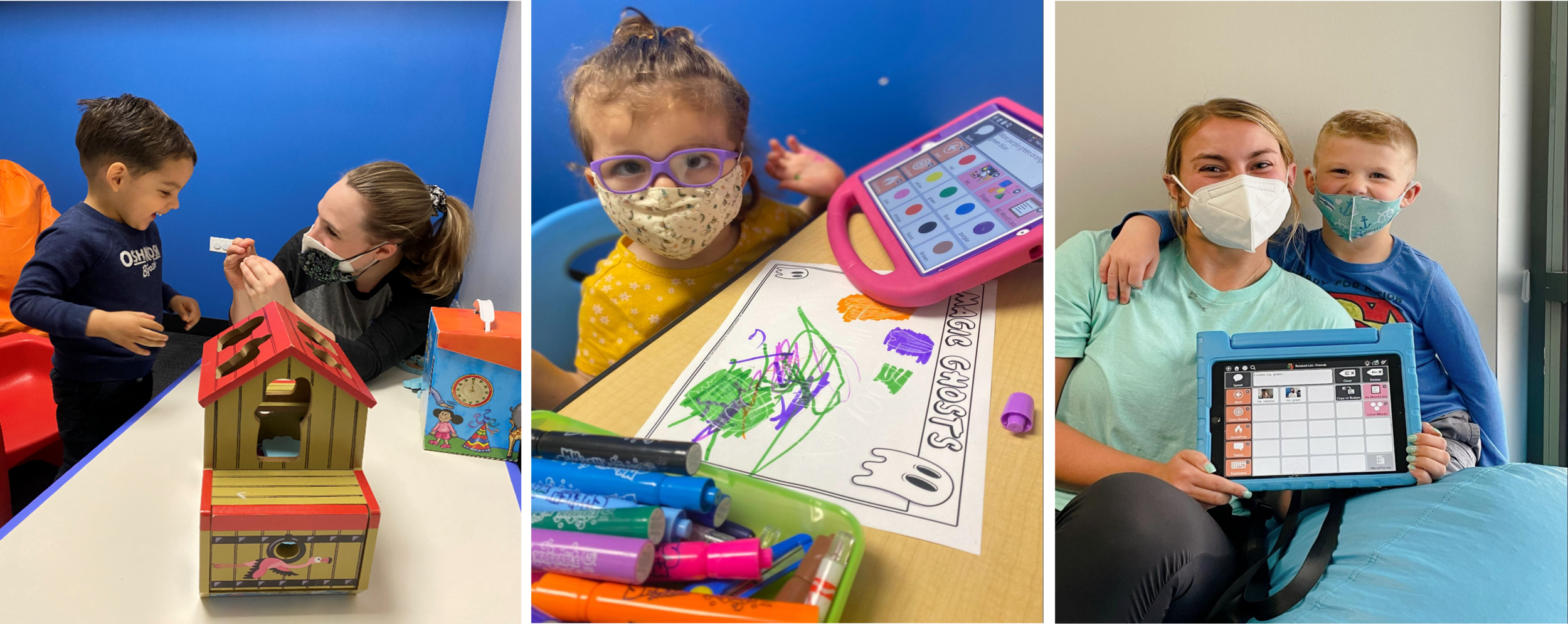Can a Speech Pathologist Help with Stuttering? Here’s What You Need to Know
Can a Speech Pathologist Help with Stuttering? Here’s What You Need to Know
Blog Article
Just How a Speech Pathologist Can Assist Improve Interaction Skills
Efficient communication is a keystone of professional and individual success, yet several individuals face obstacles that impede their ability to reveal themselves plainly. A speech pathologist is outfitted to address these obstacles with targeted evaluation and intervention methods tailored to each person's requirements. By utilizing evidence-based restorative techniques, they not only function to boost speech and language conditions yet also boost general communicative skills. Understanding the complex role of a speech pathologist exposes just how their proficiency can transform lives, inviting a better exam of the certain approaches and end results associated with their method.
Comprehending Communication Problems
Understanding communication problems is essential for recognizing just how they impact people' capacity to reveal themselves and engage with others. Interaction disorders encompass a variety of troubles that affect speech, language, and social interaction, usually hindering effective interaction. These conditions can occur from different aspects, including neurological conditions, developmental hold-ups, physical problems, or psychological concerns.
Speech problems might materialize as problems in fluency, expression, or voice production, influencing exactly how words are pronounced or talked. Language problems, on the various other hand, entail difficulties in understanding or utilizing language, which can restrain both non-verbal and spoken communication. Social communication disorders are defined by difficulties in the pragmatic elements of communication, such as taking turns in conversation or understanding social hints.
The repercussions of interaction problems are extensive, impacting not only the individual's capacity to share feelings and thoughts yet likewise their social connections, instructional chances, and overall quality of life. Understanding of these conditions can foster compassion and assistance, motivating reliable methods for communication and engagement. Recognizing the intricacies of communication problems is a critical step towards promoting inclusivity and resolving the requirements of those influenced.
Duty of a Speech Pathologist
Speech pathologists frequently play a crucial role in diagnosing and dealing with communication conditions, using a variety of evidence-based methods tailored to each person's demands. These professionals collaborate with people throughout the lifespan, from youngsters with speech hold-ups to grownups recovering from strokes or stressful mind injuries. Their experience encompasses a variety of interaction problems, consisting of expression, voice, language, and fluency conditions.
In restorative setups, speech pathologists make use of organized treatments developed to boost interaction skills. They may execute approaches such as speech exercises, language video games, and social communication training to facilitate renovations in expressive and receptive language capacities. Speech Pathologist. Furthermore, they enlighten customers and their households concerning effective interaction strategies and adaptive methods to navigate everyday communications
Beyond straight therapy, speech pathologists team up with various other health care specialists, instructors, and caregivers to make sure a comprehensive approach to therapy. They advocate for customers by giving sources and assistance, making it possible for individuals to achieve their communication objectives and enhance their overall quality of life. As professionals in the field, speech pathologists are essential in cultivating efficient interaction, promoting independence, and boosting social participation for those with interaction difficulties.
Evaluation and Diagnosis Process
The assessment and diagnosis process conducted by speech pathologists usually involves a detailed analysis to identify interaction problems accurately. This procedure begins with an in-depth medical history, where the clinician collects significant details about the individual's clinical, instructional, and developing background. Understanding the context of the person's communication troubles is crucial for an exact diagnosis.
Following the situation background, speech pathologists use informal evaluations and standard tests to evaluate different elements of communication, including speech noise production, language comprehension, meaningful language, and social interaction skills. These evaluations are customized to the individual's age and specific concerns, providing valuable data for analysis.
Monitoring is likewise a critical element of the evaluation process, as it permits the medical professional to see firsthand exactly how the specific interacts in all-natural settings. Additionally, meetings with relative and instructors can provide understanding into the individual's interaction obstacles across various environments.
Once the assessment is total, the speech pathologist manufactures the findings to determine a medical diagnosis and advise proper interventions. This thorough assessment process makes sure that individuals get targeted support customized to their special communication demands, laying the foundation for effective therapeutic approaches.
Therapeutic Methods and Strategies
Many healing methods and strategies are utilized by speech pathologists to resolve a range of communication conditions efficiently. One widely made use of method is articulation treatment, which focuses on correcting speech sounds via repeating and visual hints. This method is specifically helpful for individuals with speech audio problems.
An additional reliable strategy is language treatment, which improves both responsive and expressive language abilities. This might entail interactive activities that advertise vocabulary growth, sentence framework understanding, and conversational abilities. In addition, speech pathologists commonly use social abilities training to boost practical language capabilities, allowing people to navigate social interactions more successfully.
Fluency shaping and stuttering adjustment techniques are particularly created to assist those experiencing fluency problems. These techniques help customers develop smoother speech patterns and take care of the psychological and physical parts of stuttering.
In addition, augmentative and different communication (AAC) systems are employed for individuals with severe interaction impairments. These systems, which can include gestures, icons, or digital devices, supply vital assistance for reliable interaction.
Advantages of Speech Therapy

In addition, speech treatment can assist in establishing essential listening and comprehension skills, promoting much better interaction in conversations. Individuals with cognitive-communication problems can click this link additionally profit, as therapy concentrates on reinforcing memory and problem-solving capacities, essential for efficient communication.
One more critical facet is the emotional assistance provided during therapy sessions. Speech pathologists produce a secure setting, motivating patients to get over anxiety and frustration associated to their interaction issues. This support can bring about improved self-worth and general psychological health.
In addition, early treatment via speech therapy can protect against further complications, ensuring that individuals reach their full communicative possibility. Generally, the advantages of speech therapy expand past simple speech improvement, positively impacting various measurements of life for those affected by communication problems.
Final Thought
In recap, speech pathologists play an important role in addressing communication problems with analysis, diagnosis, and customized restorative interventions. By employing evidence-based techniques, these specialists boost individuals' speech and language abilities, cultivating boosted clearness, anchor fluency, and social interaction skills. The benefits of very early treatment underscore the value of looking for aid from speech pathologists, as their expertise can significantly enhance communicative potential, eventually causing better success in both personal and specialist spheres.

Speech pathologists regularly play an important function in identifying and treating interaction disorders, employing an array of evidence-based strategies customized to each person's demands. As professionals in the field, speech pathologists are crucial look here in fostering effective interaction, advertising self-reliance, and boosting social participation for those with interaction challenges.

Report this page